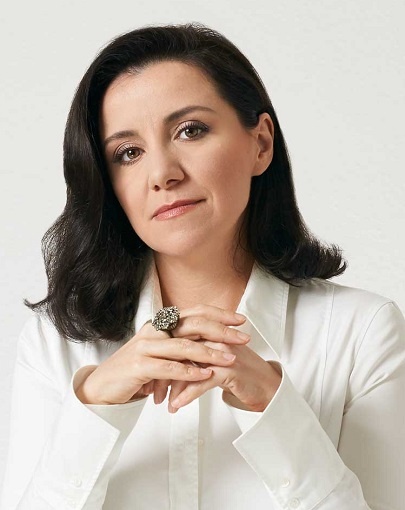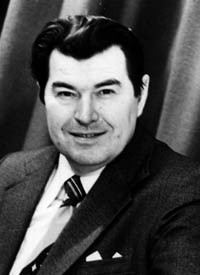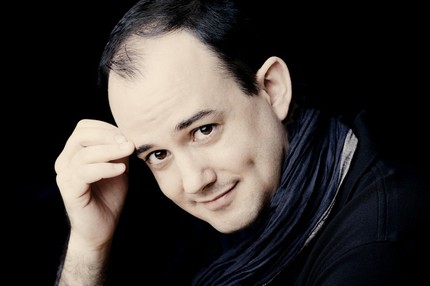
Anna Bonitatibus |
Anna Bonitatibus
Anna Bonitatibus (mezzo-soprano, Italy) is a native of Potenza (Basilicata). She studied vocal and piano classes at the higher educational institutions of Potenza and Genoa. While still a student, she won several international competitions and made her operatic debut in Verona as Asteria in Vivaldi’s Tamerlane. Within a few years, she won recognition as one of the leading vocalists of her generation in the baroque repertoire, as well as in the operas of Rossini, Donizetti and Bellini.
Anna Bonitatibus’s operatic engagements have included performances on stages such as Theatre Royal in Turin (The Phantom by Menotti, Cinderella by Rossini, Marriage of Figaro by Mozart), Theatre Royal in Parma (“The Barber of Seville” by Rossini), Neapolitan San Carlo (“Norma” by Bellini), Milan theater La Scala (Mozart’s Don Giovanni), Lyon Opera (Rossini’s Cinderella, Offenbach’s The Tales of Hoffmann), Netherlands Opera (Mozart’s Mercy of Titus), Théâtre des Champs-Elysees in Paris (Mozart’s Don Giovanni), Brussels Theater The Mint (“Julius Caesar” by Handel), Zurich Opera (“Julius Caesar” and “Triumph of Time and Truth” by Handel), Bilbao Opera (“Lucrezia Borgia” by Donizetti), Geneva Opera (“Journey to Reims” by Rossini, “Capulets and Montecchi” Bellini), Theater an der Vienna (“The Marriage of Figaro” by Mozart). She has performed at the Florentine Musical May festivals (in Monteverdi’s Coronation of Poppea), the Rossini Festival in Pesaro (Rossini’s Stabat Mater), at the early music forums in Ben (France), Halle (Germany) and Innsbruck (Austria) . For several years, the singer actively collaborated with the Bavarian State Opera, where she performed the roles of Stefano (Gounod’s Romeo and Juliet), Cherubino (Mozart’s Marriage of Figaro), Minerva (Monteverdi’s Return of Ulysses), Orpheus (Orpheus and Eurydice) Gluck) and Angelina (Rossini’s Cinderella). In the summer of 2005, Anna Bonitatibus made her debut at the Salzburg Festival in Mozart’s Grand Mass conducted by Mark Minkowski and later returned to Salzburg for the Trinity Festival (Pfingstenfestspiele) to participate in the sacred music of Alessandro Scarlatti conducted by Riccardo Muti. In 2007, the singer made her debut on the stage of the London Royal Opera Covent Garden Starring in Handel’s Roland. In the summer of 2008, her triumphant performance on the stage of this theater as Cherubino took place, which was especially noted by the London press: “The star of the performance was Anna Bonitatibus, who brought her Baroque experience to the performance of Cherubino. Her interpretation of the romance “Voi, che sapete” caused a concentrated silence in the hall and the most enthusiastic applause of the whole evening” (The Times).
Anna Bonitatibus’ concert repertoire ranges from works by Monteverdi, Vivaldi and XNUMXth century Neapolitan composers to works by Beethoven, Richard Strauss and Prokofiev. The singer is attracted to cooperation by such major conductors as Riccardo Muti, Lorin Maazel, Myung-Vun Chung, Rene Jacobs, Mark Minkowski, Elan Curtis, Trevor Pinnock, Ivor Bolton, Alberto Zedda, Daniele Callegari, Bruno Campanella, Geoffrey Tate, Jordi Savall, Ton Koopman. Recent years have been marked by the appearance of several recordings with the participation of Anna Bonitatibus, which have received brilliant reviews from the press: among them are Handel’s operas Deidamia (Virgin Classics), Ptolemy (Deutsche Grammophon) and Tamerlane (Avie), chamber baroque cantatas by Domenico Scarlatti (Virgin Classics), cantata “Andromeda Liberated” by Vivaldi (Deutsche Grammophon). The first solo album of Anna Bonitatibus with Haydn’s opera arias with the participation of the orchestra is being prepared for release The Baroque Complex conducted by Elan Curtis for the Sony Classics label, and a recording of Mozart’s “Mercy of Titus” conducted by Adam Fischer for the Oehms label.
The singer’s future performances include concert performances of Handel’s Ptolemy (Elise’s part) and Purcell’s Dido and Aeneas (Dido’s part) in Paris, performances of Handel’s Triumph of Time and Truth in Madrid Royal Theatre, “Tankred” Rossini (main party) in Turin Theatre Royal, Mozart’s Marriage of Figaro (Cherubino) at the Bavarian National Opera (Munich) and the Théâtre des Champs-Elysees in Paris, Handel’s Agrippina (Nero’s part) and Mozart’s So Do Everyone (Dorabella’s part) at the Zurich Opera, The Barber of Seville Rossini (part of Rosina) in Baden-Baden Festival Hall.
According to the press release of the information department of the Moscow State Philharmonic.





